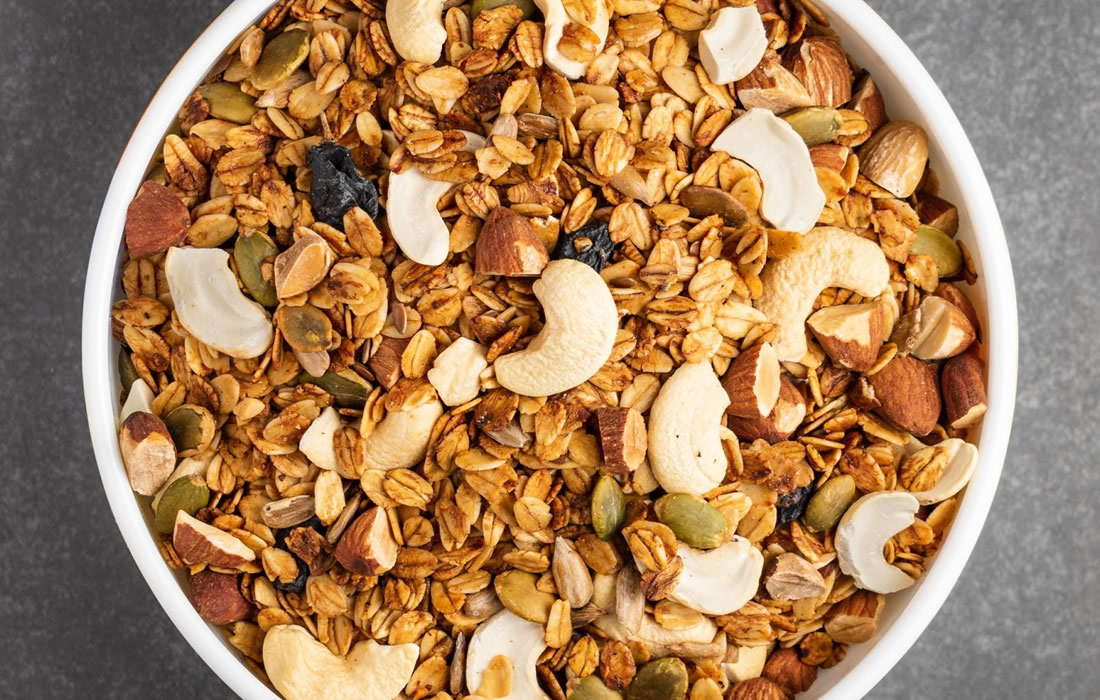Nutrition and Supplements
Should You Eat a Low-Gluten Diet?
An increasing number of people choose a low-gluten diet, even though they are not allergic to the dietary substance.
In an intervention study of healthy Danish adults, reported in Nature Communications, an international team of scientists shows that a low-gluten but fibre-rich diet changes the community of gut bacteria and decreases gastrointestinal discomfort such as bloating and is linked to a modest weight loss. The changes in intestinal comfort and body weight relate to changes in gut bacteria composition and function.
“We observed a modest weight loss, likely due to increased body combustion triggered by the altered gut bacterial functions,” explains the leading principal investigator of the trial, Professor Oluf Pedersen.
The researchers undertook a randomised, controlled, cross-over trial involving 60 middle-aged healthy Danish adults with two eight week interventions comparing a low-gluten diet and a high-gluten diet, separated by a washout period of at least six weeks with habitual diet. The composition of fibres differed markedly between the two diets.
Based on their observations of altered food fermentation patterns of the gut bacteria, the researchers conclude that the effects of low-gluten dieting in healthy people may not be primarily due to reduced intake of gluten itself but rather to a change in dietary fibre composition by reducing fibres from wheat and rye and replacing them with fibres from vegetables, brown rice, corn, oat and quinoa.
“More long-term studies are definitely needed before any public health advice can be given to the general population. Especially, because we find dietary fibres — not the absence of gluten alone — to be the primary cause of the changes in intestinal discomfort and body weight. By now we think that our study is a wake-up call to the food industry. Gluten-free may not necessarily be the healthy choice many people think it is. Most gluten-free food items available on the market today are massively deprived of dietary fibers and natural nutritional ingredients. Therefore, there is an obvious need for availability of fibre-enriched, nutritionally high-quality gluten-free food items which are fresh or minimally processed to consumers who prefer a low-gluten diet. Such initiatives may turn out to be key for alleviating gastro-intestinal discomfort and in addition to help facilitating weight control in the general population via modification of the gut microbiota,” concludes senior lead investigator, Professor Oluf Pedersen.
Sources:
Lea B. S. Hansen, Henrik M. Roager, Nadja B. Søndertoft, Rikke J. Gøbel, Mette Kristensen, Mireia Vallès-Colomer, Sara Vieira-Silva, Sabine Ibrügger, Mads V. Lind, Rasmus B. Mærkedahl, Martin I. Bahl, Mia L. Madsen, Jesper Havelund, Gwen Falony, Inge Tetens, Trine Nielsen, Kristine H. Allin, Henrik L. Frandsen, Bolette Hartmann, Jens Juul Holst, Morten H. Sparholt, Jesper Holck, Andreas Blennow, Janne Marie Moll, Anne S. Meyer, Camilla Hoppe, Jørgen H. Poulsen, Vera Carvalho, Domenico Sagnelli, Marlene D. Dalgaard, Anders F. Christensen, Magnus Christian Lydolph, Alastair B. Ross, Silas Villas-Bôas, Susanne Brix, Thomas Sicheritz-Pontén, Karsten Buschard, Allan Linneberg, Jüri J. Rumessen, Claus T. Ekstrøm, Christian Ritz, Karsten Kristiansen, H. Bjørn Nielsen, Henrik Vestergaard, Nils J. Færgeman, Jeroen Raes, Hanne Frøkiær, Torben Hansen, Lotte Lauritzen, Ramneek Gupta, Tine Rask Licht, Oluf Pedersen. A low-gluten diet induces changes in the intestinal microbiome of healthy Danish adults. Nature Communications, 2018; 9 (1) DOI: 10.1038/s41467-018-07019-x
University of Copenhagen The Faculty of Health and Medical Sciences. “Should you eat a low-gluten diet?.” ScienceDaily. ScienceDaily, 15 November 2018. <www.sciencedaily.com/releases/2018/11/181115115340.htm>.
Images from:
Photo by Abhishek Hajare
https://unsplash.com/photos/Pi4qfehwOII

